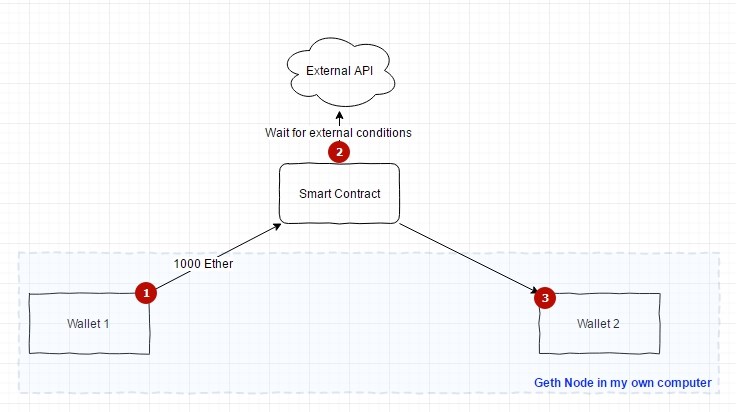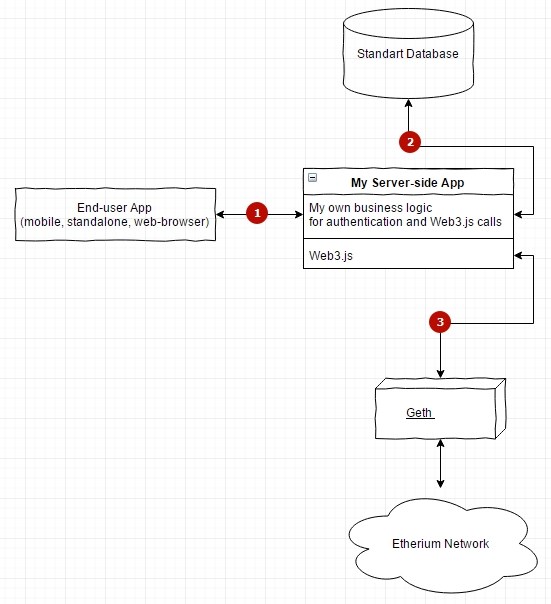Sorry for my English, again...
First I wanted to place this post on Etherium Reddit. If it needs to be there, just close this question...
I need to implement this logic:

- From Wallet 1 user sends Smart Contract 1000 Ether by calling a function in Smart Contract.
- Smart Contract holds 1000 Ether until some external event occurs. Smart Contract checks this by polling information from external API. If this event does not occur after two days Smart Contract reverts Ether.
- Smart Contract sends 1000 Ether to Wallet 2 (if the external condition of the previous step does occur).
But I need do this for users who can`t have blockchain ("Etherium Wallet" app e.g.) on own computers.
And here's the next image...

- Standart authentication - Login/Pass, OAuth, not important...
- We identified the user credentials and associate it with a particular Wallet Account (0x123...).
- Now we send commands to Geth using the Wallet Account of the previous paragraph.
- Finally, end-user has a limited set of possibilities by using the UI in the end-user app.
Is it okay to do this server-side layer, and do some authentication?
